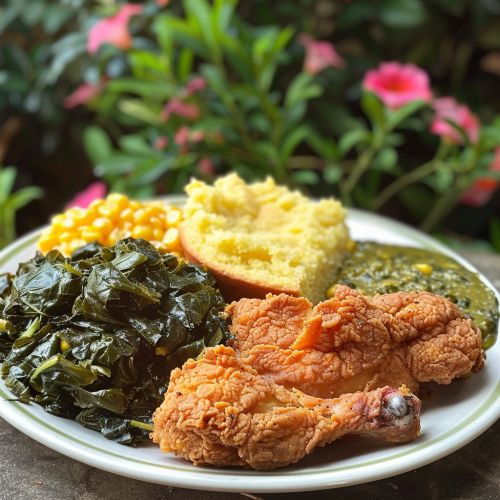Culture of Alabama
Introduction
The culture of Alabama is a rich tapestry woven from the diverse influences of its history, geography, and the various peoples who have called it home. This article delves into the multifaceted aspects of Alabama's culture, exploring its historical roots, artistic expressions, culinary traditions, and social customs.
Historical Background
Alabama's cultural landscape has been shaped significantly by its history. From the indigenous Moundville cultures to European colonization, and from the Civil War to the Civil Rights Movement, each era has left an indelible mark on the state's cultural identity. The state's history of slavery and segregation has also profoundly influenced its social and cultural dynamics.
Indigenous Cultures
Before European contact, Alabama was home to several Native American tribes, including the Cherokee, Choctaw, and Creek. These tribes had rich cultural traditions, including complex social structures, religious practices, and artistic expressions. The Moundville Archaeological Site, one of the largest prehistoric settlements in the United States, provides a glimpse into the sophisticated societies that once thrived in the region.
European Influence
The arrival of European settlers in the 16th century brought significant changes to Alabama's cultural landscape. Spanish explorers were the first Europeans to set foot in Alabama, followed by the French and the British. Each of these colonial powers left their mark, contributing to the state's diverse cultural heritage. The French influence is particularly evident in the city of Mobile, which was founded in 1702 and retains a distinct French Creole character.
African American Culture
African American culture is a cornerstone of Alabama's cultural identity. The legacy of slavery and the subsequent struggle for civil rights have profoundly shaped the state's social and cultural fabric. The Tuskegee Institute, founded by Booker T. Washington, played a crucial role in African American education and empowerment. The Civil Rights Movement of the 1950s and 1960s, with key events such as the Montgomery Bus Boycott and the Selma to Montgomery Marches, further cemented Alabama's place in the annals of American history.
Music
Alabama has a rich musical heritage that spans various genres, including blues, country, gospel, and jazz. The state is home to the Muscle Shoals Sound Studio, where legendary artists like Aretha Franklin and The Rolling Stones recorded some of their most iconic tracks. The Alabama Jazz Hall of Fame in Birmingham celebrates the state's contributions to jazz, while the W.C. Handy Music Festival in Florence honors the "Father of the Blues."
Literature
Alabama has produced a number of notable authors whose works have had a significant impact on American literature. Harper Lee, author of the Pulitzer Prize-winning novel To Kill a Mockingbird, is perhaps the most famous. Her portrayal of racial injustice in the fictional town of Maycomb has resonated with readers worldwide. Other notable authors include Zora Neale Hurston, Truman Capote, and Rick Bragg.
Visual Arts
The visual arts scene in Alabama is vibrant and diverse, encompassing everything from traditional folk art to contemporary installations. The Birmingham Museum of Art houses an extensive collection of works from around the world, while the Montgomery Museum of Fine Arts focuses on American art. Folk art is also an important part of Alabama's cultural heritage, with artists like Howard Finster and Mose Tolliver gaining national recognition for their unique, self-taught styles.
Culinary Traditions
Alabama's culinary traditions reflect its diverse cultural influences. Southern cuisine, with its emphasis on comfort food, is a staple. Dishes like fried chicken, collard greens, and cornbread are ubiquitous. Barbecue is another important aspect of Alabama's culinary culture, with regional variations in sauce and preparation methods. The state's coastal regions also offer a bounty of seafood, including shrimp, oysters, and crab.


Festivals and Events
Alabama hosts a variety of festivals and events that celebrate its cultural heritage. The Mardi Gras celebrations in Mobile are among the oldest in the United States, predating even those in New Orleans. The National Shrimp Festival in Gulf Shores attracts seafood lovers from across the country, while the Alabama Shakespeare Festival in Montgomery is one of the largest Shakespeare festivals in the world.
Sports
Sports play a significant role in Alabama's cultural life. College football is particularly popular, with fierce rivalries between teams like the University of Alabama's Crimson Tide and Auburn University's Tigers. The Iron Bowl, the annual game between these two teams, is one of the most anticipated events in the state. Other popular sports include NASCAR, with the Talladega Superspeedway hosting major racing events, and minor league baseball.
Religion
Religion is an integral part of life in Alabama, with a significant portion of the population identifying as Christian. The state is part of the Bible Belt, and evangelical Protestantism is particularly prevalent. Churches play a central role in community life, and religious events and gatherings are common. The state is also home to a growing number of Muslim, Jewish, and other religious communities.
Education and Academia
Alabama has a strong tradition of higher education, with several notable institutions contributing to its cultural and intellectual life. The University of Alabama, Auburn University, and Tuskegee University are among the most prominent. These institutions not only provide education but also serve as cultural hubs, hosting lectures, performances, and exhibitions.
Social Customs and Traditions
Social customs and traditions in Alabama are deeply rooted in the state's history and cultural heritage. Southern hospitality is a hallmark, with an emphasis on politeness, friendliness, and generosity. Family and community are highly valued, and social gatherings often revolve around food and music. Traditional crafts, such as quilting and basket weaving, are also important aspects of Alabama's cultural heritage.
Architecture
Alabama's architectural landscape is a blend of various styles, reflecting its diverse cultural influences. Antebellum architecture, with its grand plantations and stately mansions, is a prominent feature. The state also has a rich tradition of vernacular architecture, including log cabins and shotgun houses. In urban areas, modernist and contemporary designs are increasingly common, adding to the state's architectural diversity.
Media and Entertainment
The media and entertainment industry in Alabama is growing, with a focus on both traditional and digital media. The state has a number of newspapers, including the Birmingham News and the Montgomery Advertiser. Local television and radio stations also play a significant role in disseminating news and entertainment. The film industry is also gaining traction, with several movies and television shows being filmed in the state.
Conclusion
The culture of Alabama is a complex and dynamic tapestry, reflecting the state's diverse history and the various influences that have shaped it. From its rich musical heritage to its culinary traditions, and from its literary contributions to its social customs, Alabama's culture is both unique and deeply rooted in its past. Understanding this culture requires an appreciation of the many elements that contribute to it, making Alabama a fascinating subject for cultural exploration.
See Also
- Moundville Archaeological Site
- Cherokee
- Choctaw
- Creek
- Montgomery Bus Boycott
- Selma to Montgomery Marches
- Muscle Shoals Sound Studio
- Alabama Jazz Hall of Fame
- W.C. Handy Music Festival
- To Kill a Mockingbird
- Birmingham Museum of Art
- Montgomery Museum of Fine Arts
- Howard Finster
- Mose Tolliver
- University of Alabama
- Auburn University
- Tuskegee University
- Birmingham News
- Montgomery Advertiser
